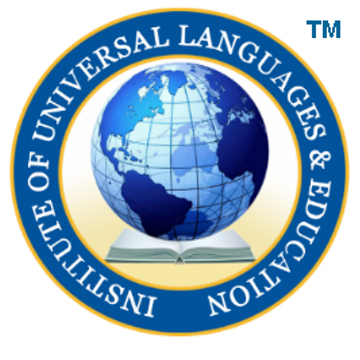Chinese is spoken in china, Hongkong, macau, Taiwan, Malaysia, Singpore and other regions with Chinese communities. Standard Mandarin is the official Language of the people of Republic of china and the Republic of china (Taiwan).

Chinese is spoken in china, Hongkong, macau, Taiwan, Malaysia, Singpore and other regions with Chinese communities. Standard Mandarin is the official Language of the people of Republic of china and the Republic of china (Taiwan). About one-fifth of the world’s population or over 1 Billion people speak some form of Chinese as their native language.
Chinese Language Facts:
About one-fifth of the world speaks some form of Chinese as its native language, making it the language with the most native speakers. The Chinese language (spoken in its standard Mandarin form) is the official language of the People’s Republic of China and the Republic of China, one of four official languages of Singapore, and one of six official languages of the United Nations.
The terms and concepts used by Chinese to think about language are different from those used in the West, partly because of the unifying effects of the Chinese characters used in writing, and partly because of differences in the political and social development of China in comparison with Europe.
Whereas after the fall of the Roman Empire, Europe fragmented into small nation-states, the identities of which were often defined by language, China was able to preserve cultural and political unity through the same period
One major difference between Chinese concepts of language and Western concepts is that Chinese makes a sharp distinction between written language (wen) and spoken language (yu). This distinction extends to the distinction between written word (zi) and spoken word (hua).
The concept of a distinct and unified combination of both written and spoken forms of language is much less strong in Chinese than in the West. There are a variety of spoken Chinese, the most prominent of which is Mandarin.
Spoken Chinese is a tonal language related to Tibetan and Burmese, but genetically unrelated to other neighboring languages, such as Korean, Vietnamese, Thai, and Japanese. However, these languages were strongly influenced by Chinese in the course of history, linguistically and also extralinguistically.
Korean and Japanese both have writing systems employing Chinese characters, which are called Hanja and Kanji, respectively. In North Korea, Hanja has been completely discontinued and Hangul is the sole way to express their language, while in South Korea, Hanja is used as a form of bold face.
Along with those two languages, Vietnamese also contains many Chinese loanwords and formerly used Chinese characters.
Nile Institute of Languages and Education is an institution for language training and translation services. Nile was established in April 2010 by an Ex-Indian Naval Officer with the objective of providing the full spectrum of language courses and services to public and private sectors.
In today’s era, multilingualism has become more than just ‘important’. Knowing more than just your mother tongue is crucial for survival. Going on an inter-state transfer? Do you have colleagues or bosses or clients from other parts of the country? Or are you getting married to a person from another state? The idea behind formation of Nile was to help learn any language, so that you could express and impress.
Additionally, in the recent times, knowing a foreign language other than your native language has evolved to be extremely beneficial. Why should you learn a foreign language? Learning a foreign language opens up employment opportunities.
For businesses, it is essential to develop and sustain a strong footing in the global economy. It is better achievable if they can understand the psychology and the language of their foreign clients. Hence, most companies look for candidates with foreign language skills.
Apart from the financial gains, learning a foreign dialect can also offer a unique experience to travellers. People, who love to explore different parts of the world, know about the diverse cultures, places, and lifestyles and knowing the local language can only make the experience better
Nile promises to provide the best of all language services including language training and translation at prices that won’t boggle your mind. And since Nile was founded by an ex-naval officer, you can be assured that you can learn as well as have fun.
The institution shares the eminent qualities of the defence ranging from discipline to fun, unity to adversity, structured friendly environment to a casual cozy setup… and these are the aspects which make us one of our kind and preferable to the other institutes.
Vision
To develop a full-fledged and completely equipped institution that can offer reasonably priced, high quality linguistic and educational coaching and services to individual and corporate clients.
Mission
To establish a strong name as the top language institution in India with the help of experienced and dedicated teachers, and to rise to be one of the top institutions in India to provide localization and translation services.

IULE has novice course for beginners and professional courses as well for trainees who have little hang of the Chinese language. Our trainers start with the Chinese language basics and then proceed to the advanced levels.

Go Lingua The Institute of Foreign Languages is offering Chinese language classes.

Chinese Language course is Offered by Stanford Language Institute.

Students and Professionals that want to learn the Mandarin language, can now join the best online Chinese courses in Kolkata, India. We are offering completely online classes for the training in the Chinese Mandarin Language.

China covers a very broad area of land. There are more than 70 million people belonging to 55 different national minorities living in China. 7 Each minority has their own spoken language. Many of the minority groups do not have a distinguishable written form for their languages.
© 2025 coursetakers.com All Rights Reserved. Terms and Conditions of use | Privacy Policy